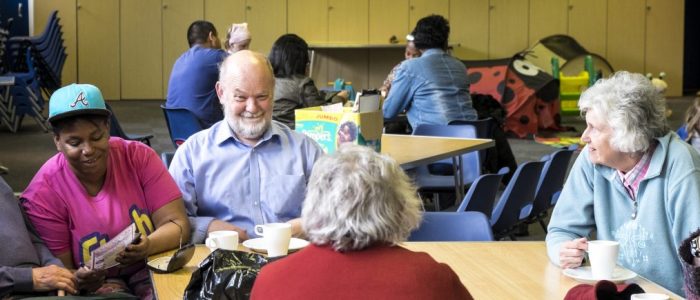How the Government Plans to Tackle Loneliness in 2020

As human beings, we all feel lonely at one point or another throughout our lives. But none of us are alone. However, loneliness is one of the most prevalent issues in our society today, with somewhere between 6% and 18% of the population describing themselves as often feeling lonely. FaithAction published our own loneliness report last year and looked at the impact that being lonely can have on people’s health and wellbeing, but also the hope that there is to be found in the difference that community projects can make.
What does the report highlight?
The start of a new year, and especially a new decade, calls for reflection on past achievements but also plans for future change. This week started with the government publishing their January 2020 Loneliness Annual Report which highlights concerns, successes and how they can take their initiatives further and expand and adapt their policies.
What has been done so far?
Back in 2018, the government set out its first steps for change and appointed the world’s first minister to lead work on tackling loneliness. They also launched an £11.5 million ‘Building Connections’ Fund and published the world’s first government loneliness strategy. This helped to set out a clear vision for future action. As we begin this new decade, the government’s goal remains to significantly reduce the number of lonely people in the next 10 years. Some of their commitments to this involve challenging the stigma which still surrounds mental health; for example, by furthering their ‘Let’s Talk Loneliness’ and the ‘Every Mind Matters’ campaigns which already have widespread support.
What next?
The government has recognised the importance of long-term resourcing for organisations to lead on loneliness learning throughout 2020/21 and has developed areas of focus for this year. These areas particularly recognise the need for more information about loneliness and strengthening community infrastructure, growing people’s sense of belonging. That’s where people like FaithAction and our members come in!
We are delighted that FaithAction have been included in the government’s report this year. One of our members – grassroots charity Community Resources for Change – has recognised loneliness as one of the leading issues for individuals who attend their Community Hub. The report highlights how ‘the opportunity to volunteer and give back is key to providing a sense of belonging and purpose to the people that attend.’ We believe that the presence of faith groups within the community, as well as other organisations, is a powerful strength in addressing loneliness. Places such as Community Resources’ Community Hub are focal points of activity known for friendliness and community. These qualities are particularly precious in a society where the presence of meeting places and socialisation is dwindling. People often attend the Community Hub, not just for the programmes and activities it offers, but also simply to enjoy the company of other people. Just a smile, or someone showing interest in their day can have a massive impact on people’s lives.
The report also celebrates some of FaithAction members’ success stories, highlighting the impact that your work makes on real lives. This recognition demonstrates the impact that our hubs and programmes have, not only on the people who visit us and benefit from developing social connections and friendships, but also on wider institutions.
The work that FaithAction does with you, our members, is not only recognised by the government, but it also encourages them in their next steps in seeking to resolve and tackle loneliness, and that is so exciting!


